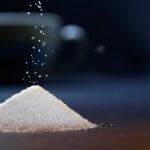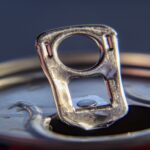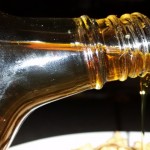In a study that began as a sixth-grade science fair project, researchers at Drexel University have found that a popular non-nutritive sweetener, erythritol, may be an effective and human-safe insecticide. Erythritol, the main component of the sweetener Truvia®, was toxic to Drosophila melanogaster fruit flies in a dose-dependent manner in the Drexel team’s study, published in PLOS ONE. […]
WHO advises not to use non-sugar sweeteners for weight control
The World Health Organization (WHO) has released a new guideline on non-sugar sweeteners (NSS), which recommends against the use of NSS to control body weight or reduce the risk of noncommunicable diseases (NCDs). The recommendation is based on the findings of a systematic review of the available evidence which suggests that use of NSS does […]
Non-nutritive sweeteners affect human microbiomes and can alter glycemic responses
Since the late 1800s non-nutritive sweeteners have promised to deliver all the sweetness of sugar with none of the calories. They have long been believed to have no effect on the human body, but researchers publishing in the journal Cell on August 19 challenge this notion by finding that these sugar substitutes are not inert, and, in […]
Artificial sweeteners may promote antibiotic resistance
Common artificial sweeteners such as saccharine and aspartame could speed up the spread of antibiotic resistance, according to University of Queensland research. More than 117,000 tonnes of artificial sweeteners are consumed across the world each year and are accepted as safe food additives, but their effects on antibiotic resistance had been unknown. Associate Professor Jianhua […]
Regular soda, please: Hormone that differentiates sugar, diet sweeteners could exist in humans
We’ve all been there: We eat an entire sleeve of fat-free, low-calorie cookies and we’re stuffing ourselves with more food 15 minutes later. One theory to explain this phenomenon is that artificial sweeteners don’t contain the calories or energy that evolution has trained the brain to expect from sweet-tasting foods, so they don’t fool the […]
How sweet it is: Artificial sweeteners in blood
A recent study by investigators at the National Institute of Diabetes, Digestive and Kidney Diseases at the National Institutes of Health measured how much artificial sweetener is absorbed into the blood stream by children and adults after drinking a can of diet soda. Results of this study are published in Toxicological & Environmental Chemistry. The team […]
Why zero-calorie sweeteners can still lead to diabetes, obesity
Increased awareness of the health consequences of eating too much sugar has fueled a dramatic uptick in the consumption of zero-calorie artificial sweeteners in recent decades. However, new research finds sugar replacements can also cause health changes that are linked with diabetes and obesity, suggesting that switching from regular to diet soda may be a […]
54 Beneficial Compounds Discovered In Pure Maple Syrup
University of Rhode Island researcher Navindra Seeram has discovered 34 new beneficial compounds in pure maple syrup and confirmed that 20 compounds discovered last year in preliminary research play a key role in human health. On March 30, 2011 at the 241st American Chemical Society’s National Meeting in Anaheim, Calif. the URI assistant pharmacy professor […]
Biological Effects Of Popular Artificial Sweetener Sucralose
The artificial sweetener sucralose is a biologically active compound according to an extensive review published by Taylor & Francis in the recent issue of Journal of Toxicology and Environmental Health, Part B: Critical Reviews. “Sucralose, A Synthetic Organochlorine Sweetener: Overview Of Biological Issues” authored by Susan S. Schiffman, PhD, an internationally known sweetener researcher and Kristina […]
DIEt Soda Raises Risk Of Diabetes
Diet soda has been linked to a higher risk of developing type 2 diabetes than regular soda sweetened with an average of 8 teaspoons of sugar per can. Whether the risk is related to the artificial sweetener aspartame or some other factor, has yet to be determined. A study of French women, published in the current issue of the American Journal of Clinical […]









